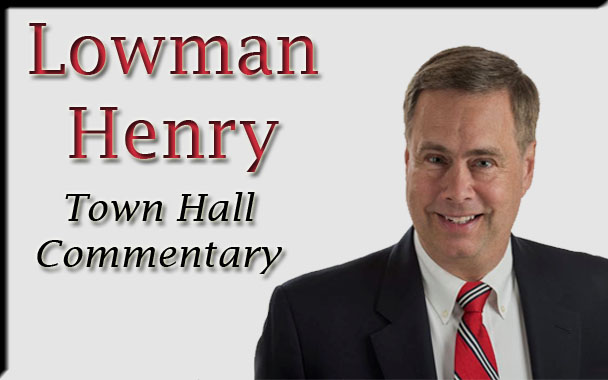Showdown Looms Over Job Crushing Greenhouse Gas Compact

I recently read an article quoting the Chief Executive Officer of a Pennsylvania-based company advocating for the implementation of the Regional Greenhouse Gas Initiative (RGGI) by saying he would be fine with paying higher energy costs to curb what he believes to be man-made climate change.
The Regional Greenhouse Gas Initiative is a proposed multi-state compact with the stated goal of cutting carbon emissions from power generators. This would somehow be accomplished by placing a tax on carbon-based energy providers including the coal fired power plants that provide family sustaining jobs to thousands of Pennsylvanians.
Of course there is nothing to stop that CEO from having his company contribute financially to projects that cut CO2 emissions. But, to achieve his policy goal he would inflict higher energy costs on every manufacturer, business, and residential consumer in the commonwealth.
There is no doubt RGGI would have a significant negative impact on Pennsylvania’s struggling economy. Meanwhile, the private sector is already on track to achieve RGGI’s carbon reduction goals without the implementation of an onerous new regulatory structure. CO2 emissions in Pennsylvania decreased by 22% from 2005 to 2016 largely due to the coming on line of natural gas fired power plants.
Research compiled by the CATO Institute found the punitive new taxes RGGI has placed on states that have already entered the compact have had serious negative economic consequences. David Stevenson of CATO reports RGGI allowance costs added to already high regional electric bills. “The combined pricing impact resulted in a 12% drop in goods production and a 34% drop in the production of energy-intensive goods.” Stevenson wrote, “Comparison states increased goods production by 20%.”
Not only is the Regional Greenhouse Gas Initiative not needed to bring about ongoing reductions in carbon emissions, while at the same time raising costs and being harmful to the economy, but Pennsylvania is attempting to implement the agreement by regulation rather than by legislation.
Knowing that the Republican-controlled General Assembly would never approve joining the compact, Governor Tom Wolf is attempting to subvert the legislature by doing so through the regulatory process. This despite the fact RGGI imposes a defacto tax on energy providers – and only the legislature can levy taxes.
In the Spring 2021 Keystone Business Climate Survey conducted by the Lincoln Institute of Public Opinion Research Pennsylvania business owners and CEOs were asked if they support or oppose Governor Wolf’s taking unilateral action on energy policies that directly impact electric rates and jobs from existing power plants without approval from the General Assembly. Seventy-three percent opposed the governor’s action, with 62% being strongly opposed.
When asked if they would support or oppose RGGI’s placement of a fee on carbon dioxide emissions from Pennsylvania power plants if they learned electric utility rates would increase by ten percent, 67% said they would oppose the initiative, while 29% would support it.
Governor Wolf is pushing for RGGI’s new layer of regulation and higher taxes on power generators at the same time as Pennsylvania’s economy is struggling to recover from the COVID-19 induced recession. In the 2021 Keystone Business Climate Survey 61% of the business owners/CEOs said the state’s economy is currently on the wrong track with 47% saying they have only partially recovered from pandemic-related business losses and 21% saying they have not recovered at all.
In summary, not only is the Regional Greenhouse Gas Initiative not needed because the private sector is already innovating toward its emission reduction goals, but the compact would significantly raise energy bills, and implementation is being pursued by the Wolf Administration through an unconstitutional regulatory process.
In the coming weeks the tug-of-war between the governor and the General Assembly will continue. At stake in the outcome are thousands of jobs, higher energy bills for consumers, and a further drag on a state economy still mired in economic recession.
The Regional Greenhouse Gas Initiative is an unnecessary, harmful sacrifice about to be placed on the altar of radical environmental extremism. Hopefully cooler heads will prevail.
(Lowman S. Henry is Chairman & CEO of the Lincoln Institute and host of the weekly Lincoln Radio Journal and American Radio Journal. His e-mail address is [email protected].)
Permission to reprint is granted provided author and affiliation are cited.





